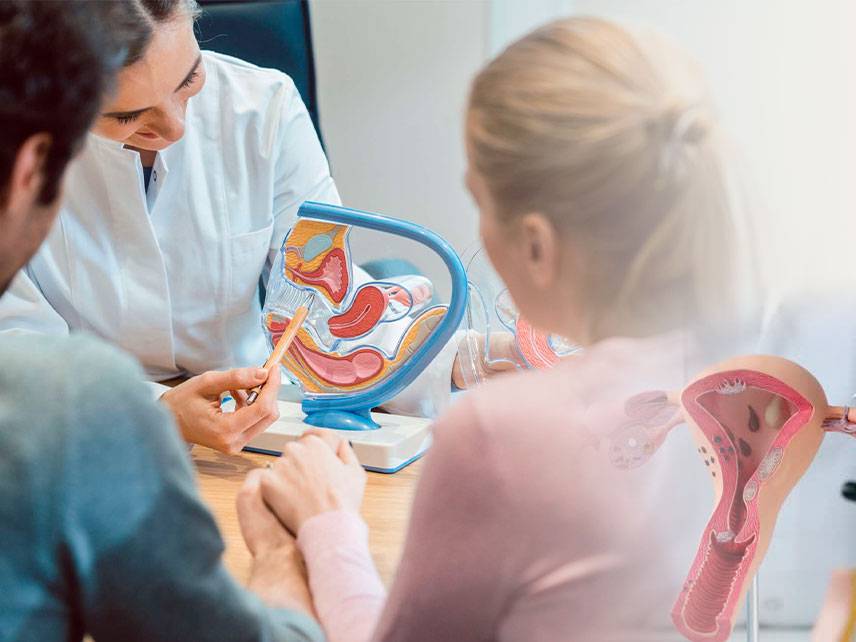The human reproductive system is an incredibly complex system, responsible for the creation and maintenance of life. Unfortunately, due to the intricacies of this system, it is also prone to a variety of diseases and illnesses. While there are many diseases that can affect the reproductive system, this article will focus on the top 10 most common. These diseases range from mild and treatable to serious and even life-threatening.
Chlamydia
Chlamydia is a common sexually transmitted infection (STI) caused by the bacterium Chlamydia trachomatis. It is the most commonly reported STI in the United States, with more than 3 million cases reported each year. Chlamydia can be transmitted through sexual contact, and is most common among young adults. Symptoms of chlamydia include pain or burning during urination, abnormal vaginal discharge, and pain or swelling in the testicles. If left untreated, chlamydia can cause long-term health problems such as infertility and pelvic inflammatory disease.
Gonorrhea
Gonorrhea is a bacterial STI caused by the bacterium Neisseria gonorrhoeae. It is the second most commonly reported STI in the United States. Gonorrhea can be spread through sexual contact, and is most common among young adults. Symptoms of gonorrhea include painful or burning urination, abnormal vaginal discharge, and pain or swelling in the testicles. If left untreated, gonorrhea can cause long-term health problems such as infertility and pelvic inflammatory disease.
Human papillomavirus (HPV)
Human papillomavirus (HPV) is the most common viral STI in the United States. It is spread through sexual contact, and is most common among young adults. HPV is the cause of genital warts, as well as several types of cancer, including cervical, vaginal, and anal cancer. While there is no cure for HPV, it is important to get regular checkups to screen for any precancerous changes.
Enital herpes
Genital herpes is a viral STI caused by the herpes simplex virus (HSV). It is most commonly spread through sexual contact, and is most common among young adults. Symptoms of genital herpes include painful sores or blisters in the genital area. While there is no cure for genital herpes, there are medications that can help reduce the severity and frequency of outbreaks.
Infertility
Infertility is a condition in which a person is unable to become pregnant or to father a child. It can be caused by a variety of factors, including hormonal imbalances, structural problems, and lifestyle factors. Treatment options for infertility include lifestyle changes, medications, and assisted reproductive technologies.
Endometriosis
Endometriosis is a condition in which the tissue that normally lines the uterus (endometrium) grows outside the uterus. It can cause pain, irregular bleeding, and infertility. Treatment options for endometriosis include medications, surgery, and lifestyle changes.
Pelvic inflammatory disease
Pelvic inflammatory disease (PID) is an infection of the reproductive organs caused by bacteria, such as gonorrhea and chlamydia. Symptoms of PID include pain in the lower abdomen and pelvis, abnormal vaginal discharge, and fever. If left untreated, PID can cause long-term health problems such as infertility and chronic pelvic pain. Treatment options for PID include antibiotics and surgery.
Polycystic ovarian syndrome
Polycystic ovarian syndrome (PCOS) is a hormonal disorder that affects the ovaries and can cause infertility. Symptoms of PCOS include irregular menstrual cycles, excess hair growth, weight gain, and acne. Treatment options for PCOS include lifestyle changes, medications, and surgery.
Uterine fibroids
Uterine fibroids are noncancerous growths in the uterus. They can cause pelvic pain, heavy menstrual bleeding, and infertility. Treatment options for uterine fibroids include medications, hormone therapy, and surgery.
Ectopic pregnancy
Ectopic pregnancy is a condition in which a fertilized egg implants outside of the uterus, usually in the fallopian tubes. It is a potentially life-threatening condition and can cause infertility. Treatment options for ectopic pregnancy include medications and surgery.
The human reproductive system is a complex and delicate system, and it is vulnerable to a variety of diseases and illnesses. The top 10 most common diseases of the human reproductive system are chlamydia, gonorrhea, HPV, genital herpes, infertility, endometriosis, pelvic inflammatory disease, polycystic ovarian syndrome, uterine fibroids, and ectopic pregnancy. While some of these diseases can be mild and easily treatable, others can be more serious and even life-threatening. It is important to seek medical attention if you think you may have any of these conditions.





